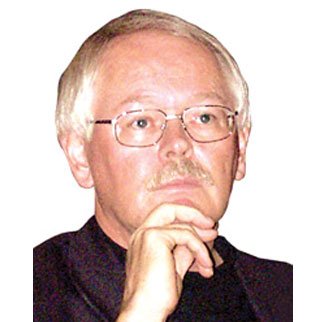
Fr. Ron Rolheiser
Ronald Rolheiser, a Roman Catholic priest and member of the Missionary Oblates of Mary Immaculate, is president of the Oblate School of Theology in San Antonio, Texas.
He is a community-builder, lecturer and writer. His books are popular throughout the English-speaking world and his weekly column is carried by more than seventy newspapers worldwide.
Fr. Rolheiser can be reached at his website, www.ronrolheiser.com.
We see in Jesus’ eyes, God is good
God, as I understand Him, is not very well understood. A colleague of mine, now deceased, was fond of saying that. It’s a wise comment.
Dorothy Day — a saint for our time
Some time soon we will witness the canonization of Dorothy Day. For many people, especially those who are not Roman Catholic, a canonization draws little more than a yawn. How does a canonization impact our world? Moreover, isn’t canonization simply the recognition of a certain piety to which most people cannot relate? So why should there be much interest around the canonization of Dorothy Day — who in fact protested that she didn’t want people to consider her a saint and asserted that making someone a saint often helps neutralize his or her influence?
Human nature: is it somehow all wrong?
An American humorist was once asked what he loved most in life. This was his reply: I love women best; whisky next; my neighbour a little; and God hardly at all!
Sometimes, political correctness is simply correct
Just because something is politically correct doesn’t mean that it might not also be correct. Sometimes we have to swallow hard to accept truth.
The healing place that is silence
A recent book by Robyn Cadwallander, The Anchoress, tells the story of a young woman, Sarah, who chooses to shut herself off from the world and lives as an Anchoress (like Julian of Norwich). It’s not an easy life and she soon finds herself struggling with her choice. Her confessor is a young, inexperienced monk named Fr. Ranaulf. Their relationship isn’t easy. Ranaulf is a shy man, of few words, and so Sarah is often frustrated with him, wanting him to say more, to be more empathic and simply to be more present to her. They often argue, or, at least, Sarah tries to coax more words and sympathy out of Ranaulf. But whenever she does this he cuts short the visit and leaves.
A eucharistic prayer over an awakening world
We too are covenanted to say Mass for the world
Healing through positive growth in our hearts
All of us live with some wounds, bad habits, addictions and temperamental flaws that are so deeply engrained and long-standing that it seems like they are part of our genetic make-up. And so we tend to give into a certain quiet despair in terms of ever being healed of them.
Jesus is the humblest of foot soldiers
Several years ago, the movie Argo won the Academy Award as best movie of the year. I enjoyed the movie in that it was a good drama, one that held its audience in proper suspense even as it provided some good humour and banter on the side. But I struggled with several aspects of the film.
A primal understanding of the Eucharist
Christian de Cherge, the Trappist Abbott who was martyred in Algeria in 1996, tells this story of his first communion. He grew up in a Roman Catholic family in France and on the day of his first communion he said to his mother: “I don’t understand what I’m doing.” She answered simply: “It’s okay, you don’t have to understand it now, later you will understand.”
Best we can do in the circumstances
Recently I led a week-long retreat for some 60 people at a renewal centre. Overall, it went very well, though ideally it could have gone better. It could have gone better if, previous to the retreat, I had more time to prepare and more time to rest so that I would have arrived at the retreat well rested, fully energetic and able to give this group my total undivided attention for seven days.

